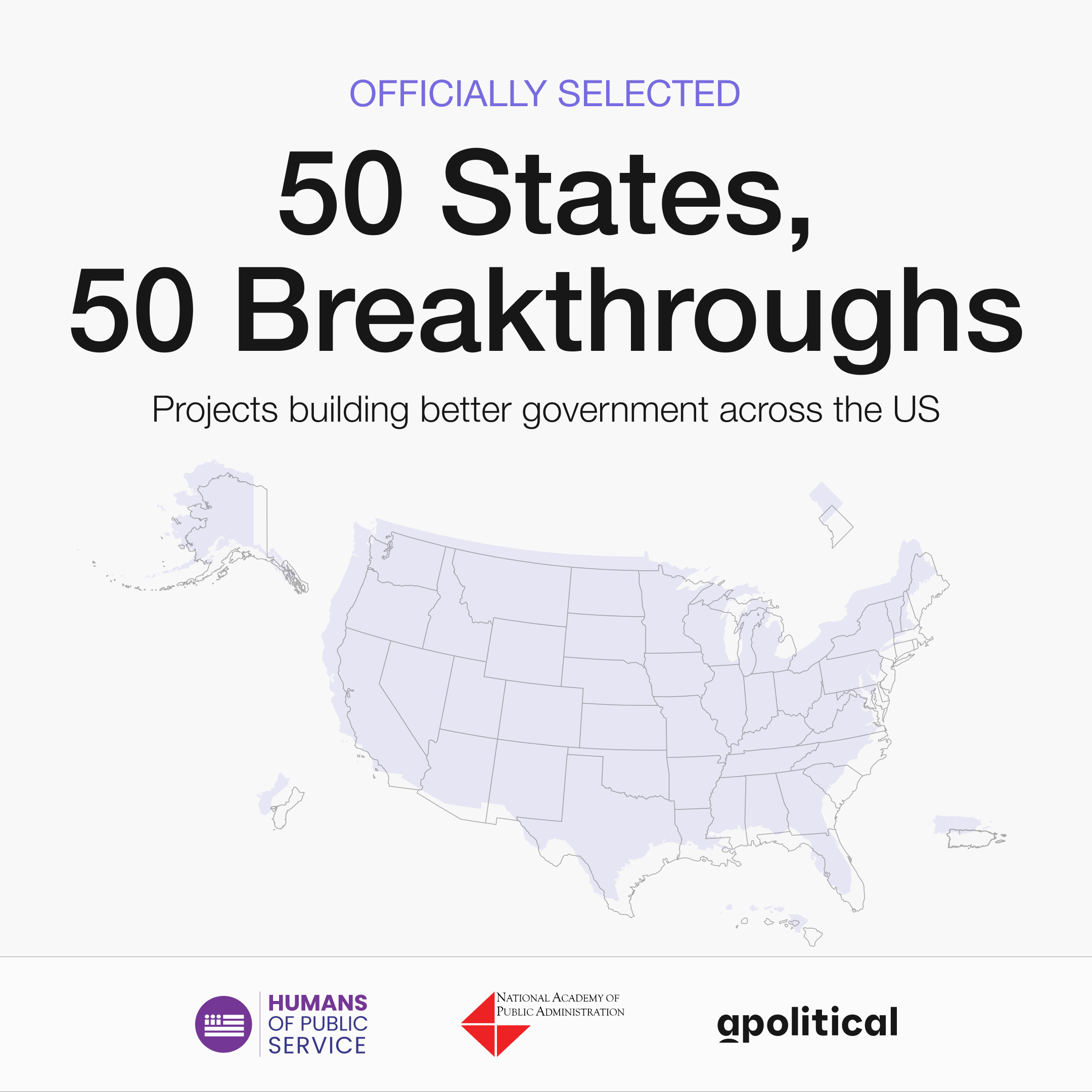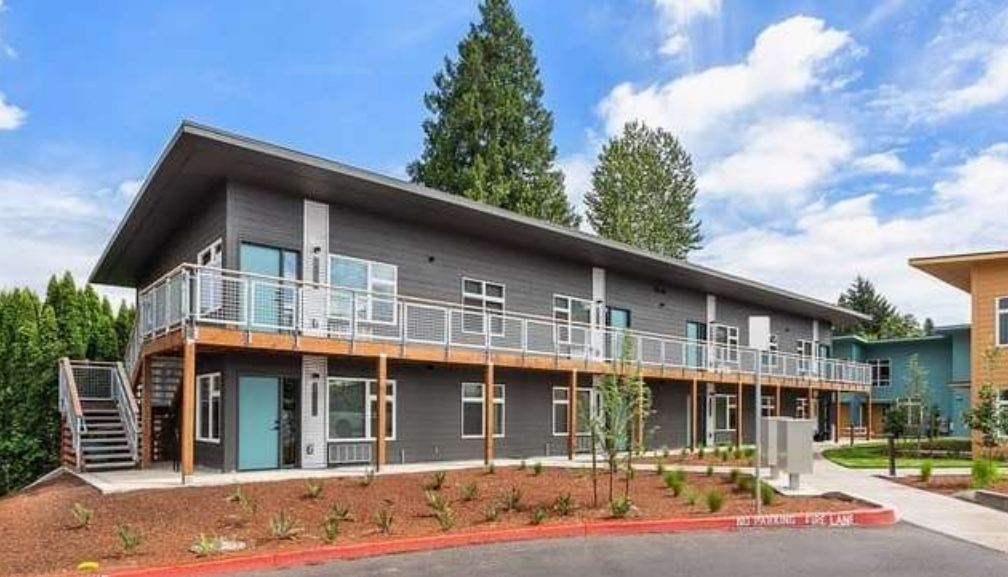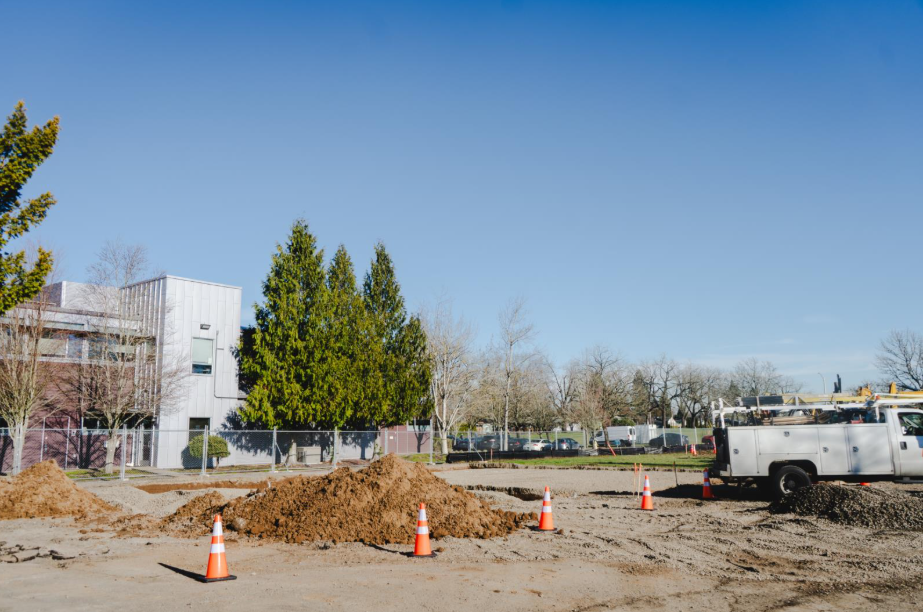"Oregonians deserve a government that delivers solutions that make their lives better and more affordable — a government not stuck in outdated ways of the past that relied on excessive and elaborate bureaucracy," OHCS Executive Director Andrea Bell said. "Governor Kotek and OHCS’ ambition is not dulled by the challenges of this moment. Such a moment demands a government with the will to usher in a new era committed to operational excellence and to addressing the cost-of-living crisis people are facing. Not one or the other. OHCS’ Oregon Centralized Application (ORCA), made possible because of public servants and the expertise of our partners, is rooted in Oregonians helping Oregonians—a story of our shared humanity."
50 States, 50 Breakthroughs is a collaboration between the online network for public servants Apolitical, the National Academy of Public Administration (NAPA), and the storytelling nonprofit Humans of Public Service. The showcase features one project from every state, plus Washington, D.C., Guam, Puerto Rico—lifting up public servants who are redesigning government to better meet the moment.
Oregon’s funding process, ORCA, reflects OHCS’ commitment to tackling the state’s housing affordability crisis by deploying housing investments more expeditiously and efficiently to get housing units on the ground more timely.
Launched in June 2024, ORCA replaced Oregon’s fragmented and highly competitive affordable housing funding process with a single, coordinated intake system. Instead of projects incurring the cost of applying multiple times for funding through various competitive Notices of Funding Availability (NOFAs) with different rules, timelines, and thresholds, developers now apply through one central application and review process for all resources.
Through ORCA, developers submit project applications when they are ready and are reviewed against consistent standards so that when resources become available, they can be matched to properties that are ready. This reduces the cost for project applications and effectively focuses effort by both developers and the state on sustaining and expanding affordable housing. As part of the ORCA, OHCS incorporates predevelopment and organizational capacity investments, development resource set-asides and technical advisors to support navigating state tools and processes. The result of this system change is a faster, more transparent, more equitable system, particularly for rural, Tribal, and culturally specific organizations that previously faced barriers to entry.
"At a time when trust in government matters deeply, 50 States, 50 Breakthroughs show what effective, innovative public service looks like in action,” said James-Christian Blockwood, president and CEO of the National Academy of Public Administration. “These solutions improve outcomes in our state and local communities and offer powerful examples that strengthen public service nationwide."
Brian Whittaker, executive director of Humans of Public Service, added, “Reading these stories fills us with pride. Public servants across the country are deeply committed to their communities and are finding new, thoughtful ways to serve them better.”
Projects were reviewed by a panel of expert practitioners and leaders from across the public service ecosystem – spanning government, academia, technology and civic innovation. Drawing on deep experience in public sector leadership, scalable impact and innovative technologies, the reviewers helped identify initiatives demonstrating real-world impact, originality and potential to be adapted and scaled by governments nationwide. Together, they offer an encouraging view of what the future of government in the U.S. can look like.
“This is about celebrating the people inside U.S. public service who are—often quietly—delivering extraordinary impact,” said Cori Zarek, Vice President of North America at Apolitical. “Across the country, public servants are finding new ways to solve complex problems and serve their communities better. The 50 States, 50 Breakthroughs list is our way of celebrating that innovation — and making sure these ideas get the attention they deserve.”
About Oregon Housing and Community Services (OHCS)
OHCS is Oregon's housing finance agency. The state agency provides financial and program support to create and preserve opportunities for quality, affordable housing for Oregonians of low and moderate income. OHCS administers programs that provide housing stabilization. OHCS delivers these programs primarily through grants, contracts, and loan agreements with local partners and community-based providers. For more information, please visit: oregon.gov/ohcs.
About the National Academy of Public Administration
Chartered by Congress to provide expert advice, the Academy is an independent, nonpartisan, and nonprofit organization established in 1967 to assist government leaders in building more effective, efficient, accountable, and transparent organizations. Learn more at www.napawash.org.
About Humans of Public Service
Humans of Public Service (HOPS) is a non-profit, non-partisan organization that shares stories of public servants on social media platforms such as LinkedIn and Instagram. We aim to support government through leadership and career development opportunities and create a community of public servants across the country. Humans of Public Service (HOPS) empowers current and future public servants to build satisfying careers that benefit the collective good through celebration, education, and exploration.
About Apolitical
Apolitical is the world’s largest online network of public servants, with a mission to make governments smarter. It is used by half a million public servants and policymakers across 170 countries, providing governments with the tools, skills and networks they need to become more effective and tech-enabled organizations. Apolitical is a strategic partner to governments, helping them prepare their workforces for the future. We achieve this by upskilling government workforces through short online courses focused on government priorities, enabling them to find and share best practice through peer communities, and building innovative tools designed for and with governments. Apolitical partners with leading universities and research institutions, including Oxford, the London School of Economics, Stanford Online, and Georgetown University.


